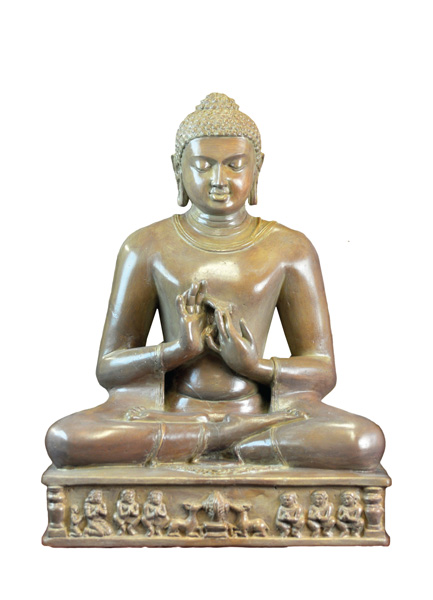Uposatha Day,Last Quarter Moon, August 10, 2012
Recall that my Uposatha Day posts are going to assume a more spontanious form during the next three months of Rains Retreat.
In my correspondence with students I found one simple quote from Dogen to be applicable twice in one week (this is a paraphrase):
“If you come across a turtle stuck on its back, turn it over!”
In our actions in the world it is very important to balance compassion with the virtues equanimity and wisdom. The problem is that our compassionate action gets mixed in with a lot of other motivations and habits. In short we find one way or another to make it about “me”. We are the one that has to solve this problem, we are the one who fails or succeeds, other people are obstacles to what we are trying to do, you are the one who does not receive enough support or acknowledgement. I think the way we think about compassion in the West is part of the problem, as something necessarily mixed in with anger and a degree of despair. Notice that the word even includes “passion.” In Buddhism compassion is stripped down to simply responding to the suffering of others appropriately. Your emotions just get in the way: They make it difficult to assess things objectively, they drain your energy and ultimately they undermine you very capacity for compassion. Compassion is simple: As Dogen wrote, “If you come across a turtle stuck on its back, turn it over!” It is that simple. Compassion does not have to arise from personal suffering-along.
We all deal with issues as they come up as part of living in the world, but there are two ways in which we deal with issues: at a functional level and at a personal level. The personal level is extra, it comes from thinking we have a personal stake in circumstances or in the outcomes of dealing with the world. Thinking this way is being enchanted or clinging, and it is the source of suffering. At a higher level it is the source of entanglement in samsara as one thing leads to another (we are enchanted by our new cell phone so we hate the person who just sat on it … or who has one just like it). When we realize how painful our clinging is, how it leads to problems for us, then we become disenchanted. The Pali word is nibbida, which is sometimes translated as revulsion, but disenchantment or disillusionment is probably better. It is as if everything we had been touching were red hot but while we had known something was wrong we could not see the source of the pain. (See the “Fire Sutta”.) It is not just that everything is red hot, but we have been wrapping ourselves up in it. When we see clearly what is going on we stop doing it. An example is breaking through denial to clearly see one’s addiction to alcohol and the consequences it has had for one’s life … then giving it up.
Now, a functional level approach to dealing with issues is like this: “If you come across a turtle stuck on its back, turn it over!” This requires no thought, no particular emotion; it is simply the right thing to do. The ideal would be to deal with all issues with perfect equanimity; as something comes up just do what needs to be done with no stress or anxiety. Now this ideal is almost impossible to attain, but luckily we can move toward it by degrees. I think the ideal itself is what is meant by the end of kamma, it is the way the arahant deals with issues. For the rest of us there is always a bit of personal involvement in outcomes, even if our motives are purely compassionate (bright kamma). When our motives are greedy or hateful we are very far from this ideal indeed (dark kamma).
Disenchantment leads to renunciation (nekkhamma), that is, letting go of what we cling to. This can progress by steps, but the general trajectory is toward simplification. Renunciation generally involves an outward as well as an inward component. The outward is important because it is easier, and it provides a check on falling back into old mental (inward) patterns. For instance, say you have a fancy new car and you constantly fret about getting a dent or a scratch. Inward renunciation would be to let go of the fretting; outward would be to sell the car and get a junker (or alternatively to take hammer in hand and turn your fancy car into a junker!). Outward renunciation for the alcoholic is to give up drinking. Outward renunciation is immediate. Inward renunciation will follow very very slowly in this particular case.

Leave a Reply